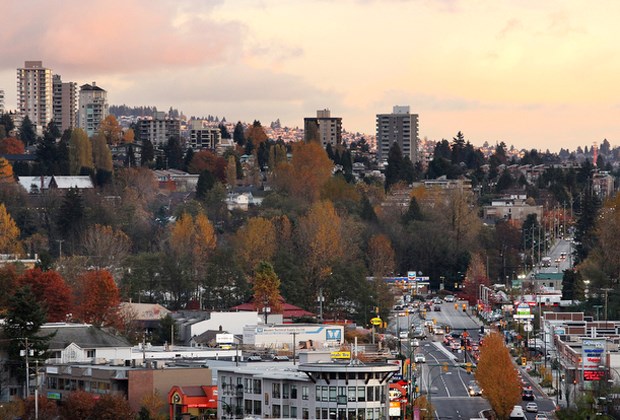Incidents of COVID-19 related racist harassment are on the rise, according to the North Shore Multicultural Society.
In the last week, the group has received several reports of verbal attacks, threats and incidents of intimidation in public spaces and shops – mostly targeting people of Asian descent, said Andisheh Fard, Manager of the society’s Centre for Diversity and Innovation.
“This is the last thing that should be happening right now when everyone's dealing with a pandemic,” she said. “We need to take a stand on this and highlight how it is impacting people - how people are not feeling safe doing errands and activities that already take a lot of courage to do these days because it's not easy going out right now. You have this added layer of fear because of people being ignorant and hateful.”
The North Shore is hardly alone in this, Fard noted, as several high-profile incidents of violence and intimidation targeting Asians have been reported in Metro Vancouver and across Canada since COVID-19 began.
Fard said she suspects the racist abuse is coming from people who already held biases and are now feeling emboldened to put them into words, wrongly blaming the pandemic on immigrants.
“That fear of the other - the fear of around immigrants or migrants, or racialized folks or people of colour, even Indigenous folks, it's not something new to our community,” she said.
Data collected by the National Post found, of the confirmed 1,201 cases COVID-19 in Ontario related to international travel, only five were from China. The United States was by far most common source of infection.
If you are in danger, the first move should always be to call 911, Fard said. But for anyone who has been targeted by racist harassment who isn’t comfortable filing a report with police on their own, Fard said the multicultural society will help.
Reports of racist harassment will be investigated thoroughly and could lead to charges, assured North Vancouver RCMP Sgt. Peter DeVries.
"We are aware that some COVID-19 incidents were not reported to us. This is a real concern. If we don't know about it, we can't offer our help," he said. "We want the community to know that if they call us we will take their complaint seriously and sensitively. But we need them to call."
Beyond condemning racist attacks, Fard said everyone must be willing to confront these biases as they arise, both in public and in their own homes.
Because many racialized newcomers arrive and can’t have their previous experience or credentials recognized, they end up working in “survival jobs,” which tend to be doing frontline work in the essential services still running during the pandemic, Fard said.
“Your ethnicity and race has a huge impact on how you experience society in Canada. That's something that this pandemic is highlighting but something that existed prior to this pandemic.”
If policy makers want to address those societal inequities, they must be willing to bring racialized people in from the margins to be at the centre of discussions that will have disproportionate impacts on them.
“Being willing to address the hard truths that our communities face and being open to going through that change as a society as a whole,” she said. “This racism doesn't end once the pandemic ends.”



